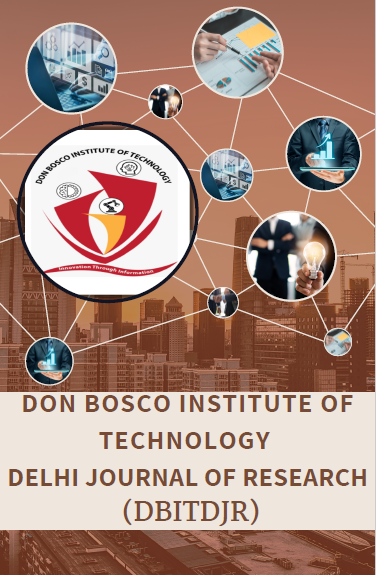CSR in Business for Sustainable Enterprise
DOI:
https://doi.org/10.48165/dbitdjr.2024.1.01.05Keywords:
Triplebottomline, philanthropy, stakeholders, ethicsAbstract
Over time, businesses have added additional components, such corporate governance, service-dominant thinking, and sustainable business. Examples of these include corporate social responsibility. It used to be said that an organization’s main responsibility was to maximize profits for its stakeholders at the expense of its ability to improve society as a whole. Ecology, another important component that was previously disregarded, is now receiving the attention it deserves. A “business case” for corporate sustainability is a concept that more and more businesses, environmental groups, and others are adopting to bolster their sustainable business practises. No company can stay in business for very long if it withdraws from these operations. Therefore, it is now essential to engage in responsible corporate citizenship in the contemporary economic environment by Understanding these phrases and integrating them into company social culture is increasingly essential. The theoretical examination of corporate social responsibility (CSR) in this article will primarily center on the triple bottom line (TBL) in terms of the economic, social, and environmental components. The study of corporate social responsibility (CSR) for sustainable business will be built around the triple bottom line, with a focus on the importance of this concept for running sustainable businesses. The value that companies may provide to their clientele will determine how corporate businesses turn out.
References
ISO 26000 (2016), see the last developments at the portal http:// www.iso.org/iso/home/standards/iso26000.htm , accessed Sep 20, 2016 EU-CSR (2011),
COM(2011)-681: A renewed EU strategy 2011-14 for Corporate Social Responsibility, European Commission, http://eur-lex.europa.eu/legalcontent/EN/TXT/ PDF/?uri=CELEX:52011DC0681&from=EN , retrieved, August 2, 2015
Responsible Care (2016) http://www.icca-chem.org/en/Home/ Responsible-care/ , accessed Oct14, 2016 CSR-Romania (2015),
Studiuprivindimplicareacompaniilor din Romania in activitati de “ResponsabilitateSocialaCorporatista, http://centras. tree.ro/assets/upload/File/Raport%20RSC.docretrieved Sep 21, 2016
Hohnen, P. (2007), Corporate Social Responsibility: An Implementation Guide for Business, International Institute for Sustainable Development,
Winnipeg, Canada Werther, W.B.Jr. and Chandler, D. (2006), Strategic Corporate Social Responsibility, Sage Publications, Thousand Oaks, California, United States GRI (2015), Global Reporting Initiative, https://www.globalreporting.org/ Pages/default.aspx , accessed October 19, 2016
The Balanced Scorecard Institute (2016), http://balancedscore card.org/ , accessed October 19, 2016 Danubianu, Mirela and C.Teodorescu (2016),
Managerial Tools and Sustainable Development, PESD 10(1), 2016, pp 151-160 Teodorescu, C. et al. (2011),
Applying Life Cycle Analysis Of Industrial Products To Macroeconomic Level, Paper #II-O-20 presented at the International Symposium “The Environment and the Industry”, SIMI-2011, organized by ECOIND – Bucharest




